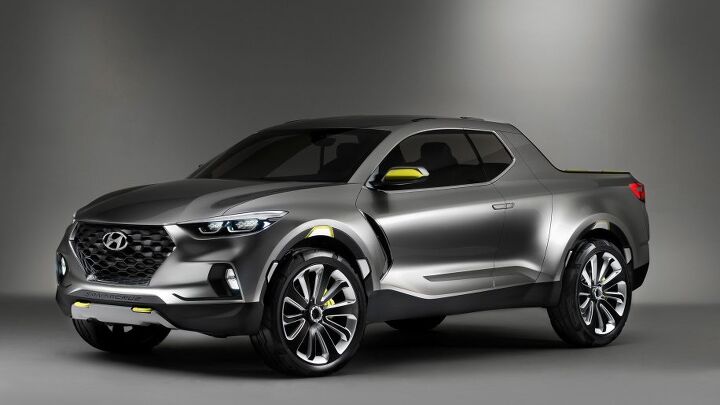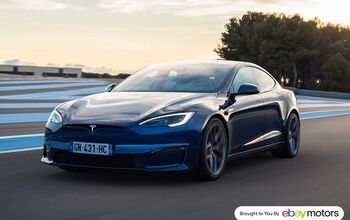The Pressure's On: Hyundai Motor America's Newly Minted CEO Needs to Turn It Around

After Hyundai’s American division canned former CEO David Zuchowski for failing to meet internal sales targets last December, it’s no mystery what Job One is for the new guy.
Kyung Soo Lee, a 61-year-old veteran of the company who started his career back in 1982, takes the helm of a troubled ship next week, Hyundai announced Thursday. As president and CEO, Lee (Kenny to his friends) is responsible for reversing a dismal sales trend that sunk his predecessor, as well as the company’s U.S. fortunes.
Long gone are the rosy days following the recession, where Hyundai Motor America recorded skyrocketing sales growth as its rivals were still struggling to find their feet. Unfortunately, with too many cars and not enough hot-selling utility vehicles, the tide began turning in 2013. Growth that year was poor, and the years following saw the company’s sales trajectory follow that of an ice-laden jetliner with one engine set at idle.
Through August, the automaker’s 2017 U.S. sales are down 21 percent. The buying public’s rapid shift to trucks, crossovers and SUVs caught the company off guard, and plans were afoot to remedy the paltry SUV lineup even before Zuchowski was ushered out the door. Plans, it should be noted, that’ll take time to come to fruition.
Regardless of what might be keeping Hyundai execs up at night, the company’s public face is one of confidence and guarded optimism.
“Mr. Lee has an in-depth understanding of Hyundai Motor’s global operation, following nearly two decades in diverse markets around the world, including the U.S., Europe and Latin America,” said Won-hee Lee, president and CEO of Hyundai Motor Company, in a statement. (As of September 18th, interim CEO Jerry Flannery returns to his post as the company’s executive vice president, among other duties.)
It’s clear that Lee, who Hyundai calls “one of the most respected leaders” in its global operation, knows exactly what’s expected of him.
“I’m honored and motivated to have been selected to lead Hyundai Motor America in one of the most interesting times in the automotive industry’s history and to reinvigorate momentum in the strategically important U.S. market,” said Lee in a statement, adding, “We have significant opportunities ahead of us.”
Lee could just as easily replaced “opportunities” with “challenges.” Indeed, there are many.
With Chinese buyers turning away from the brand for geopolitical reasons, Hyundai needs a strong showing in traditionally strong markets. However, in May of this year, sister division Kia outsold Hyundai for the first time in America. The refreshed 2018 Sonata midsize sedan, while more attractive than its predecessor, faces an all-new Toyota Camry and Honda Accord in a shrinking segment. A hoped-for uptick in sales has yet to materialize.
Sending more sedans to fleet customers and boosting incentives has helped move some of the inventory backlog, but it’s cutting into the automaker’s profits. Meanwhile, dealers are becoming annoyed with the company’s sales tactics.
On the ground, the company faces rail-related distribution issues that continue to this day.
What Hyundai needs to prop up its U.S. operations is more utility vehicles. The Zuchowski-era plan calls for a revamp of the brand’s existing crossovers, plus the addition of new models. The small Kona crossover arrives in early 2018 to score some sales in the subcompact segment, while a long-rumored pickup truck has finally been given a green light — though when we’ll see it, and what form it will take, remains a mystery.
It will be an interesting first few months on the job for Lee.
[Images: Hyundai]

More by Steph Willems
Latest Car Reviews
Read moreLatest Product Reviews
Read moreRecent Comments
- 28-Cars-Later $12K? I needed a good laugh.
- EBFlex Wait...the feds are claiming that inflation was not FJBs fault 6 months prior to an election where he is massively losing in the polls in every single category?Eyebrow raised.
- MaintenanceCosts Most of the article after the blockquote is Posky laboring mightily to somehow blame this clearly anticompetitive and oligopolistic conduct on the big bad government.I look forward to some of the usual commenters explaining to us that, actually, the oil industry is a cuddly teddy bear and the real villain is people trying to sell us cars that don't use oil.
- Bd2 A modest price bump for one of the better if not the best vehicle in it's class. And it's a very good deal still considering the Front wheel drive competition over at Lexus to name one. These Genesis vehicles are more like BMWs of the 90s but with better styling.
- Dave M. What???? Big business taking advantage of us? I thought it was all Biden's fault!?!


































Comments
Join the conversation
Yeah, Hyundai/Kia has conquest sales. Other people didn't buy them because of "bought by the credit-impaired" or the "thrifty" Some in those two somewhat negative categories talked up their "sizzling good deal" or "it was so much cheaper than the Japanese one". Throw in some adversarial customer support and salespeople leaving oil slicks of sleaziness in their wakes and you have some problems. So these people bought a Hyundai/Kia; H/K's conquest sales are people buying a second one.
Aside from doing more to improve long-term reliability, and to actually honor their damn warranty, I think Hyundai could diversify their lineup here by introducing the commercial van they sell elsewhere. https://en.m.wikipedia.org/wiki/Hyundai_Starex Mercedes-Benz and Nissan have found the commercial van segment in this country viable enough to submit entries. Why not Hyundai? Is it worse than dumping their sedans into rental fleets? They have an American manufacturing presence, the plant in Alabama could be expanded to build it for this market. While they're at it, they could design and build a traditional-style truck off the same platform (perhaps to coincide with the next generation of the van?), something to complement their upcoming crossover-style truck as a heavier duty alternative. If that platform wouldn't support it, maybe base it off the platform that underpins their Porter truck? I doubt the forward-control style Porter would pass North American safety standards as it is, but again, this could be rectified with designing the next-generation of this vehicle with those standards in mind (as well as supporting a non-COE type truck that would likely sell much better here). On another note, I also could see them getting back with Chrysler (now FCA), since Sergio seems so intent in partnering up with another automaker. They still sell products elsewhere badged as Dodges, the Accent in Mexico, and that van I showed above is also sold as a RAM. Why couldn't the next-gen 300/Charger share a platform with the Genesis large sedan (G90 I think it is)? The Giulia platform could still be used for a smaller RWD Dodge or Chrysler. It would seem both companies have a lot to offer each other, with platform sharing of their FWD cars as well. This wouldn't necessarily impact Hyundai brand sales here in the U.S. per say, but it could give them more channels with which to sell their increasingly less popular cars. Rebadging the Elantra to become an FCA compact to replace Dart (and the Tipo/Neon elsewhere), for example, could help keep the factory running and help justify development of future generations. Just a few ideas. Perhaps they've already studied them in some form, and decided against them for whatever reasons, but as I said, just a few ideas I had.